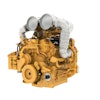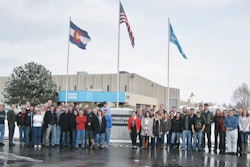With economic and military demand likely to grow in the next few years, the United States must reform its mine permit process and safety regulations to get to the vast underground store of rare earths materials that could drive growth, add jobs and bring revenues to state budgets, according to a new study from the National Center for Policy Analysis (NCPA).
“Rare earths and rare earth mining are crucial to modern life, providing critical components of everything from iPhones to computers, medical CAT scans, defense equipment, wind turbines and other forms of green energy. Yet, the United States depends on other countries, some of which are not very friendly, for these elements, importing more than 96% of its rare earths,” says NCPA Adjunct Fellow Tom Tanton.
“This dependence on foreign sources such as China for our supplies of these critical elements must end and it can,” says Tanton.
The study found that states with rare earth resources could increase gross state product by almost $40 billion, add nearly 3,600 shovel-ready jobs and improve state revenues by $724 million by simplifying the approval process for rare earths mining projects.
“Australia and Canada set good examples of how it should be done. Their permit approval time is dramatically shorter than the average seven years it takes in this country. The U.S. needs to combine redundant and multiple agencies into a single ‘one-stop-shopping’ authority. Where possible, we can speed up the process by reviewing permit requests simultaneously instead of concurrently.”
“It is economically foolish to rely on other countries for such critical minerals, when we have a bounty of them in the U.S. available for use,” adds Tanton.


















